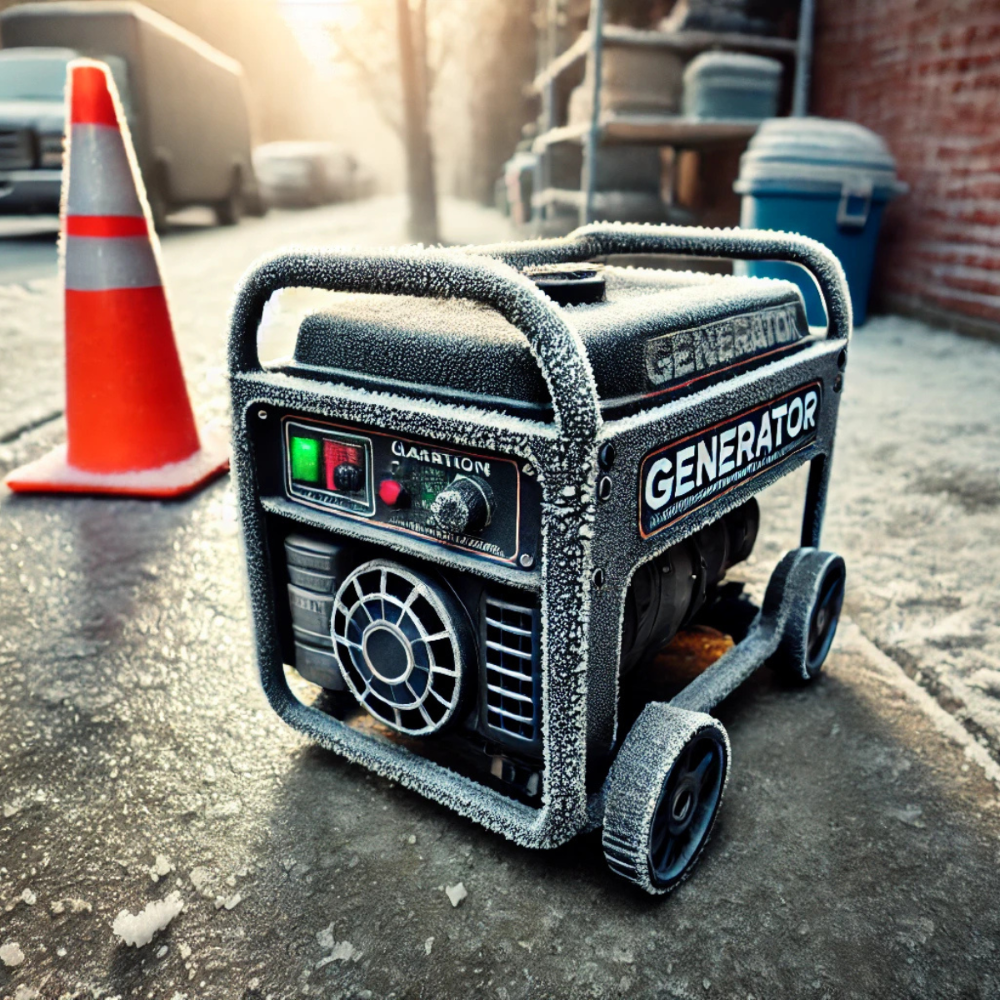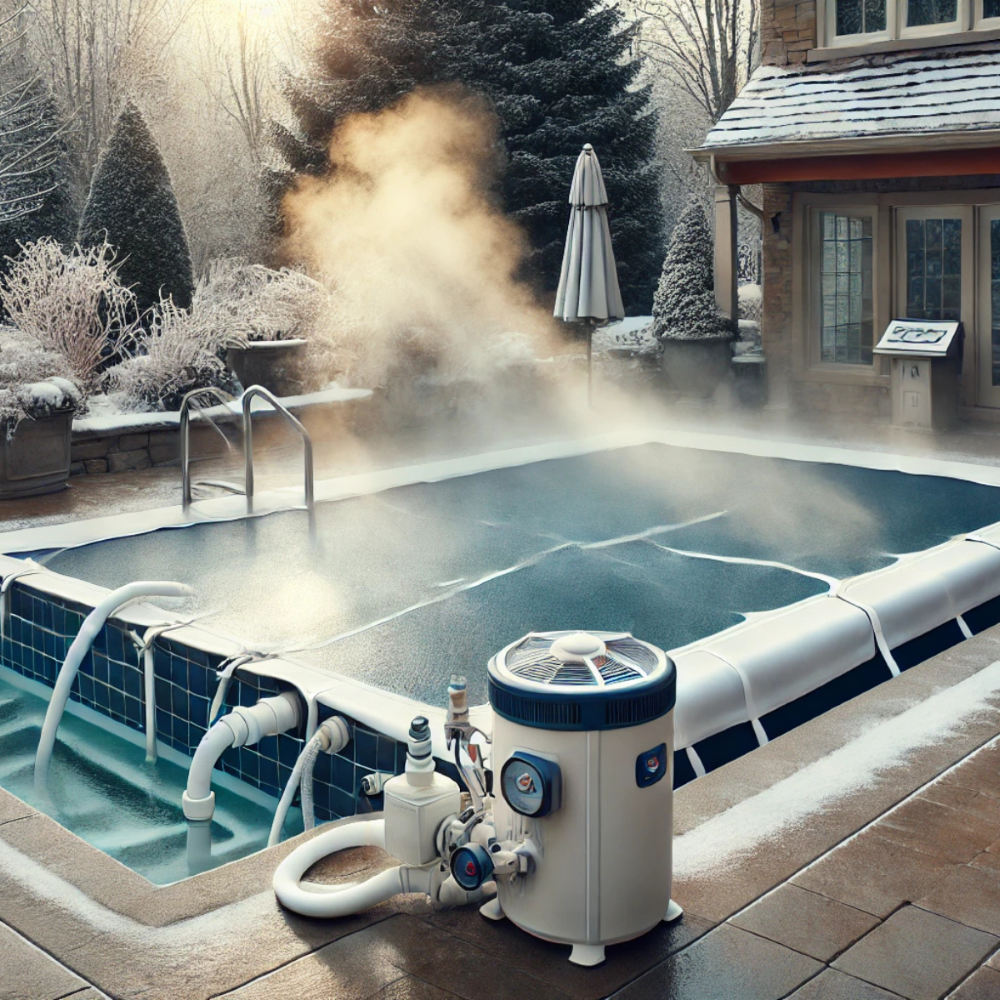Preparing Businesses and Homes for Cold Weather
Risk Management Tips
Overview
Winter weather can bring freezing temperatures, snow, and ice, all of which can pose significant risks to homes and businesses. Proper preparation helps minimize potential damage and ensures safety. Here are key tips to help protect your property during the winter season. Additionally, personalized coverage options can provide tailored protection to meet the specific needs of your home or business during the winter season.
Understanding Cold Weather Risks
Cold weather can pose significant risks to businesses, particularly those located in areas prone to winter storms. As a small business owner, it’s essential to understand these risks and take steps to mitigate them. Common cold weather risks include property damage from snow and ice, business interruption due to power outages, and medical expenses resulting from slips and falls. Having the right business insurance coverage, such as general liability insurance and commercial property insurance, can help protect your business from these risks. General liability insurance can cover medical expenses if someone is injured on your property, while commercial property insurance can help with repairs and replacements if your commercial property is damaged. By understanding these risks and ensuring you have the appropriate coverage, you can safeguard your business against the unexpected costs of winter storms.
Prepare Your Property for Freezing Temperatures
Taking steps to winterize your home or business can prevent costly damage, especially for small business owners:
- Insulate Pipes: Wrap exposed pipes with insulation to prevent freezing and bursting. Pay extra attention to outdoor spigots, basements, and crawl spaces.
- Seal Drafts: Inspect and seal gaps around windows, doors, and vents to keep warm air in and cold air out.
-
Inspect the Roof: Check for loose shingles, damaged flashing, and clogged gutters to prevent leaks and ice dams.
- Protect HVAC Systems: Schedule a professional inspection to ensure heating systems are working efficiently and replace filters as needed.
- Install a Backup Power Source: Consider investing in a generator to ensure uninterrupted power during winter storms.
A business owner’s policy (BOP insurance) can be a cost-effective solution, combining general liability insurance and commercial property coverage to offer broader protection.


Prepare Your Pool for Freezing Temperatures
Freezing temperatures can cause significant damage to your pool equipment and plumbing if not properly managed. Here’s how to protect your pool and avoid costly repairs:
- Keep Pumps Running: Ensure your filter pump and water feature pumps are running when temperatures drop below freezing. Circulating water prevents it from freezing solid in the lines, which can expand and damage pipes or equipment.
- Check Freeze Protection Settings: Most pools have built-in freeze protection that automatically activates pumps when temperatures approach freezing (typically between 37-38°F). For automated systems, check your control panel to confirm the settings. Analog or timer systems usually have a temperature adjustment knob near the equipment.
- Inspect During Freezing Weather: Periodically check your pool equipment during freezing temperatures to ensure the system is running as intended. If it’s not functioning, contact a professional to address repairs. Additionally, make sure all pumps are connected to the freeze protection system.
- Prepare for Power Outages: If a power outage occurs during extreme cold, turn off the pool system at the main breaker to prevent automatic restart while frozen. Drain water from the pool’s main components, such as the filter, pumps, and heater, to avoid damage caused by expanding ice.
- Cover Your Pool: Use a weatherproof pool cover to reduce heat loss, keep debris out, and provide an extra layer of protection during winter weather.
- Consult a Professional: If you’re unsure how to check or adjust freeze protection settings, reach out to a pool service technician for assistance. They can guide you through the process and help with any needed repairs or maintenance.
Maintain Safety Inside
Cold weather can increase safety risks indoors. Take these precautions:
- Test Smoke and Carbon Monoxide Detectors: Ensure detectors are functioning properly, especially if using space heaters or fireplaces.
- Inspect Fireplaces and Chimneys: Have chimneys professionally cleaned to prevent fire hazards.
- Use Space Heaters Safely: Keep heaters on level surfaces and away from flammable materials, and never leave them unattended.
- Keep Emergency Supplies: Stock flashlights, batteries, blankets, water, non-perishable food, and a first aid kit for power outages
Protect Commercial Property Outdoor Areas
Winter weather can create hazards outside your property:
- Clear Walkways and Parking Areas: Remove snow and ice regularly and apply salt or sand to prevent slips and falls.
- Maintain Outdoor Lighting: Ensure all exterior lighting is functional to improve visibility during dark winter evenings.
- Trim Trees: Remove weak or overhanging branches that could break under the weight of snow or ice and cause damage.
- Secure Outdoor Equipment: Store or anchor items like patio furniture, signage, and tools to prevent wind damage.
Maintain Fleet Facilities
Don’t forget to prepare your fleet’s home base:
- Clear Parking Areas: Regularly remove snow and ice from fleet yards and use salt or sand to improve traction.
- Use Engine Block Heaters: For vehicles parked outside, block heaters can prevent engine freezing and reduce wear during startup.
- Inspect Garages: Ensure garages are insulated and heated to protect vehicles and equipment from extreme cold.
Managing Snow and Ice
Managing snow and ice is crucial to preventing accidents and property damage. As a business owner, you can take several steps to manage snow and ice on your property effectively. Start by regularly clearing snow and ice from walkways and parking lots to ensure safe access for employees and customers. Use salt or other ice-melting products to prevent slipping hazards. Installing handrails and non-slip mats in areas prone to ice can provide additional safety. It’s also essential to have a snow removal plan in place, whether it involves hiring a professional service or designating staff members to handle the task. By taking these proactive measures, you can help prevent accidents and property damage, reducing the risk of insurance claims.
Roof Preparation and Maintenance
Your business’s roof is one of its most critical components, and it’s essential to prepare and maintain it for cold weather. Start by inspecting your roof for any damaged or missing shingles that could lead to leaks. Clear debris such as leaves and branches to prevent blockages and additional weight. Proper ventilation is crucial to prevent ice dams, which can cause significant property damage. Consider hiring a professional to inspect and maintain your roof, ensuring it’s in optimal condition to withstand winter weather. By preparing and maintaining your roof, you can help prevent costly repairs and reduce the risk of property damage.
Winterize Your Business Operations for Small Business Owners
Cold weather can disrupt business operations if you’re not prepared:
- Protect Inventory: Keep valuable stock in temperature-controlled areas and ensure storage areas are sealed from drafts.
- Review Insurance Coverage: Check that your policies cover winter-related risks like frozen pipes, roof collapse, or business interruption. Consider the various methods available to purchase insurance, such as through integrated business services or insurance agents, to ensure you have comprehensive coverage for winter-related risks.
- Create an Emergency Plan: Develop a plan for potential disruptions, including communication protocols, temporary closures, and remote work arrangements.
- Inspect Sprinkler Systems: Ensure sprinkler systems are insulated to prevent freezing, which could lead to water damage or fire safety issues.
Prepare Your Home for Winter Storms
Winter storms can leave homeowners vulnerable to damage. Here’s how to stay ahead:
- Install Storm Windows: Add storm windows or plastic insulation to improve energy efficiency and reduce heat loss.
- Check Sump Pumps: Ensure sump pumps are working properly to prevent basement flooding from melting snow or ice.
- Locate Shut-Off Valves: Know where your water shut-off valves are in case of a burst pipe.
- Keep Roof and Gutters Clear: Regularly remove snow and ice to prevent roof collapse or water infiltration.
In the event of any damage or accidents, promptly filing an insurance claim can help ensure that you receive the necessary compensation to cover repair costs and other expenses.
Creating a Winter Emergency Kit
A winter emergency kit can help your business stay safe and operational during a winter storm. Essential items to include in your kit are flashlights and batteries, first aid supplies, warm blankets and clothing, non-perishable food and water, and a battery-powered radio and charger. Additionally, having a backup power source, such as a generator, can be invaluable during power outages. By having a well-stocked winter emergency kit on hand, you can help ensure that your business is prepared for any winter-related emergency, keeping your operations running smoothly and your employees safe.
Communicate with Employees and Family
Effective communication is key to ensuring everyone stays safe:
- Share Emergency Plans: Make sure employees and family members know what to do during severe weather.
- Provide Contact Information: Keep a list of emergency contacts, including utility providers and insurance agents.
- Stay Informed: Monitor weather updates and alerts to stay ahead of changing conditions.
Filing a Claim for Cold Weather Damage
If your business suffers damage from cold weather, it’s essential to file a claim with your insurance company as soon as possible. Start by contacting your insurance agent or company to report the damage. Provide detailed documentation of the damage, including photos and videos, to support your claim. Keep records of any expenses related to the damage, such as repairs and temporary relocation costs.
Don’t Wait- Call to see what you are missing on your winter storm
checklist

Winter weather can be unpredictable, but with the right preparation, businesses and homes can minimize risks and stay safe. From insulating pipes to creating emergency plans, these proactive measures will help protect your property, maintain operations, and ensure peace of mind throughout the season.
At Tower Street Insurance, we specialize in tailoring solutions that meet your family and business’s specific needs, helping you secure better terms and lower premiums in this evolving market.
Have questions about how the Winter Storm impacts you? Contact us today for a personalized consultation. Let us show you how the right broker can turn market trends into real savings for your business.
Call us at 469-788-8888 or email us at admin@towerstreetinsurance.com for expert guidance. Get a Free Quote to see how we can help you save while staying protected. Choose Tower Street Insurance—where expertise meets opportunity.